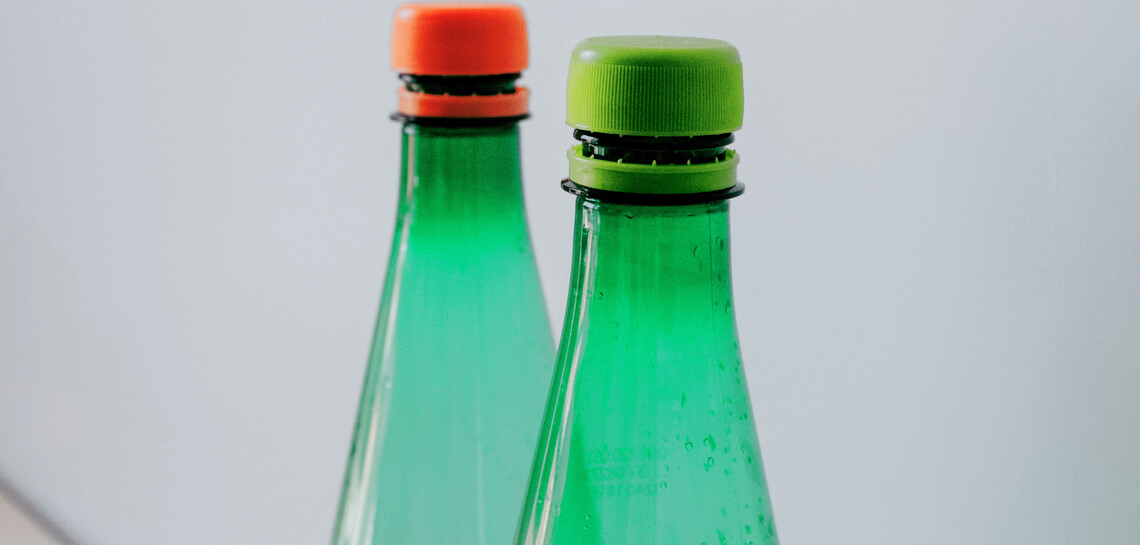At the European Council of July 2020, the EU heads of state and government decided to introduce a levy on unrecycled plastic packaging waste from 1 January 2021. As a new source of own resources, the plastic levy will go to the EU budget, and the funds collected are to be used primarily to finance COVID-19 aid.
The plastic levy consists of a uniform call rate of €0.80 per kilogram of non-recycled plastic packaging waste. The plastic packaging waste subject to the levy is calculated from the difference between the plastic packaging waste generated in a Member State in a given year and the plastic packaging waste recycled in the same year, in accordance with the European Packaging Directive.
Thus, this own resource does not result in a new tax for producers, traders or consumers of plastics. However, to refinance the plastic levy, the introduction of new industry-based charges for single-use plastics is already being discussed in various Member States. For example, in Italy a new tax on single-use plastic products was meant to have already come into force by early summer 2020, but due to the COVID 19 pandemic, its introduction has already been postponed several times and is now planned for 1 January 2022.
In Germany, on the other hand, the discussion has not progressed and so there is no draft legislation as yet. However, it is increasingly expected that the formal legislative process will begin immediately after the Bundestag elections in autumn 2021.
In the absence of an EU directive to be implemented, the legislator is relatively free to design a German plastic tax. However, it is anticipated that the tax regulations will be based on other non-harmonised excise duties, such as the coffee tax or the alcopops tax. In its decisions of 7 May 1998, 2 BvR 1991/95 and 2 BvR 2004/95, the German Federal Constitutional Court has already ruled that the criterion of “consumability” under excise duty law is met for disposable packaging, even though the packaging has not suffered in practice any loss of substance.
The main limitations faced by the legal framework of this new tax are usually found in the local regulations. The EU Plastic Products Directive 2019/904 essentially contains consumption reduction requirements, bans on the placing on the market of certain plastic articles and requirements for the marketability of other single-use plastic articles and their labelling obligations. This directive was transposed into German law with the Ordinance on the Prohibition of Single-Use Plastics, which came into force in July 2021. The ordinance prohibits the production and import of numerous single-use plastic articles. A possible plastic tax would in principle not lift these bans. It can be assumed that a tax would instead only apply to plastic products that are still permitted after the implementation of the Single-Use Plastic Ban Ordinance. Both regulations would coexist in such a case.
In the legislative process, it must first be determined to which products and at which stage of production the new tax would apply. In addition, tax concessions and the structure of the tax tariff could be used to impose different burdens on the various facts. A number of questions arise, which include: should the payment obligation already be incurred during the production of plastic granulate or only after completion of the packaging material?; should both man-made and natural polymers be taxed?; how should recycled, recyclable or compostable materials and environmentally-friendly production processes be treated?; and should only packaging be taxed or also other short-lived uses of plastic? Inevitable demarcation problems and grey areas arise with each of these questions.
In the German excise tax laws, the tax objects are regularly defined by reference to the customs tariff numbers of the Combined Nomenclature. The focus for a plastic tax is the customs tariff number 3923: Articles for the conveyance or packing of goods, of plastics; stoppers, lids, caps and other closures, of plastics.
The Italian law itself does not specify exact products or goods, but only states that single-use plastic products in the form of films, foils and strips are taxable. The assumption is that this includes bottles, bags and food packaging made of polyethylene, Tetra Pak packaging, packaging made of expanded polystyrene and plastic caps.
In principle, it is conceivable to levy the tax at all levels of the value chain. Tax debtors for Tübingen's new municipal packaging tax on disposable packaging of take-away meals will be, for example, the retailers and hotel/restaurant/café (Horeca) owners. Due to the COVID-19 pandemic, the introduction of this tax has been postponed to 1 January 2022.
According to an expert opinion by the Scientific Service of the German Bundestag, it should be considered likely that a new national plastic tax will be levied on “companies that produce and/or use non-recycled plastic packaging” (see Deutscher Bundestag, Verfassungsmäßigkeit der Einführung einer Plastiksteuer im Rahmen der geplanten wirtschaftlichen Aufbaummaßnahmen (“Next Generation EU”), WD 4 - 3000 - 084/20, 14.08.2020).
To keep the tax collection effort as low as possible, excise duties in Germany are often levied at the producer level. For example, the tax debtor for the energy tax on fuels is usually the refinery operator and not the operator of the petrol station. On the other hand, levying the tax at a late stage in the process chain has the advantage that it only has a late impact on the liquidity of companies. As cost taxes, excise duties have a direct impact on the operating result.
Systematically, the tax debtors are supposed to take the costs of excise duties into account in their price calculations and pass them on to their customers. The tax is thus ultimately borne by the end-consumer. In practice, however, there are limits to the extent to which additional costs can be passed on, especially in the case of products that are in international competition.
Something particularly worth discussing when creating a plastic tax is the question of whether tax concessions should be granted for certain uses. For example, tax exemptions for packaging for pharmaceuticals and medical technology would be obvious.
Analogous to this aspect are the tax exemptions in the alcohol tax law and in the tobacco tax law for alcohol or tobacco used for the production of medicinal products by persons authorised to do so under the pharmaceutical law. For this purpose, the beneficiaries must apply for special permits, submitting company declarations and site plans, and prove the actual use of the products on the basis of company documents. Demarcation problems regularly arise if the use of a raw material in processes based on the division of labour is only defined at a late stage in the process, e.g. alcohol that can later be processed into both medicines and cosmetics. If several companies are involved in a common process, then particularly strict standards are applied to the verification.
Excise duty is generally only levied on products consumed domestically. Thus, disposable plastics produced in Germany for export would not be subject to tax. The export of taxed products should in principle give rise to a claim for tax relief. In parallel, the plastic tax would in principle arise with the purchase of taxable products from abroad. Tax assessment becomes complex if packaging is already imported as a component of the product.






